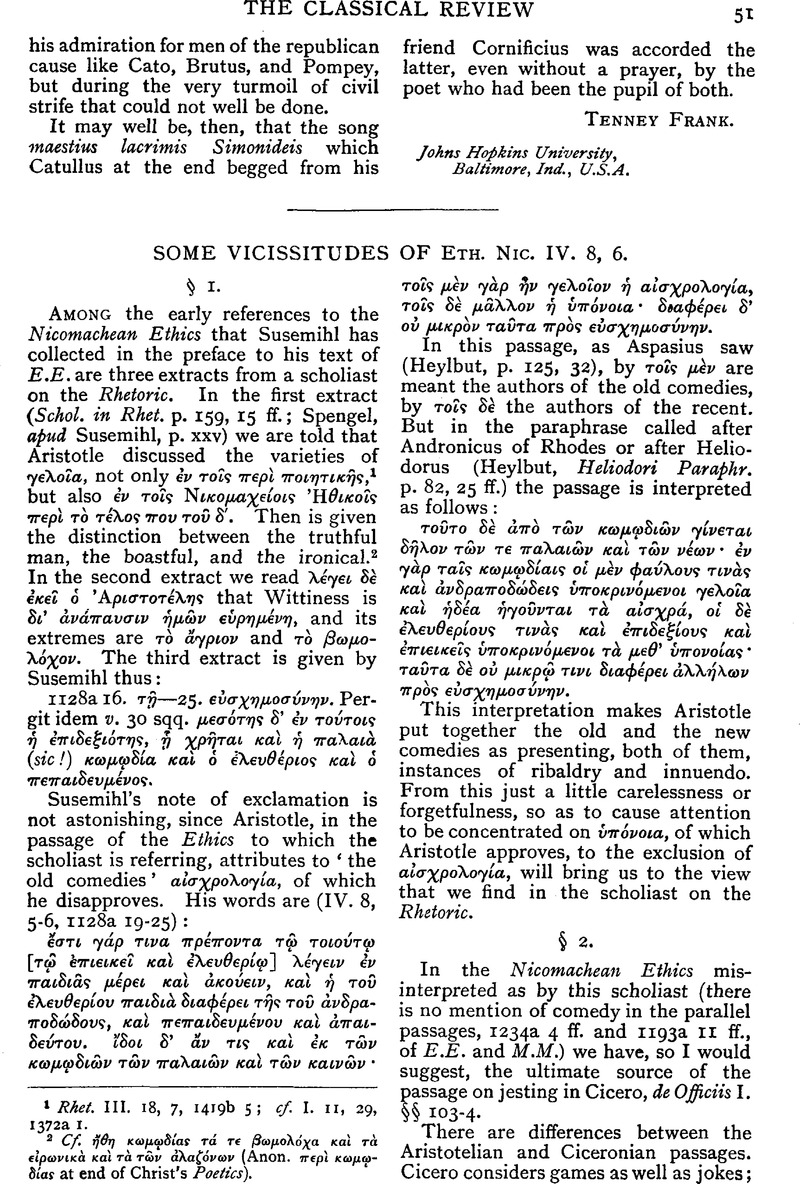No CrossRef data available.
Published online by Cambridge University Press: 27 October 2009

page 51 note 1 Rhet. III. 18, 7, 1419b 5; cf. I. 11, 29, 1372a 1.
page 51 note 2 Cf.![]() (Anon,
(Anon, ![]() at end of Christ's Poetics).
at end of Christ's Poetics).
page 53 note 1 A little earlier (vv. 20−2) Aspasius says of the ![]() that he
that he ![]() . Is all this about the gods out of his own head? Or did he find
. Is all this about the gods out of his own head? Or did he find ![]() as a variant for
as a variant for ![]() in 1128a 35 and explain both readings? We seem to have the-same phenomenon, i.e. explanation of two variants, p. 114, 4 (E.N. IV. 3, 27, 1124b 24−6):
in 1128a 35 and explain both readings? We seem to have the-same phenomenon, i.e. explanation of two variants, p. 114, 4 (E.N. IV. 3, 27, 1124b 24−6):  . Evidently he found
. Evidently he found ![]() instead of, or as a variant beside,
instead of, or as a variant beside, ![]() .
.
page 53 note 2 Contrast with Aristotle's condemnation of the Old Comedy for ![]() , Marc. Aur. XI.
, Marc. Aur. XI. ![]() .
.
page 54 note 1 Cf. Rickaby, , Aquinas Ethicus II. 376Google Scholar. It is pleasant to observe that Amasis' simile of the bow (Hdt. II. 173) had been transferred, a little altered, in collationibus patrum to St. John the Evangelist; unde beatus Joannes subintulit quod similiter animus hominis frangeretur si nunquam a sua intentione relaxaretur. In this Article are six references to Cicero, viz. one to de Invent. I. 17, 25, and five to de Off. I. §§ 103.40.